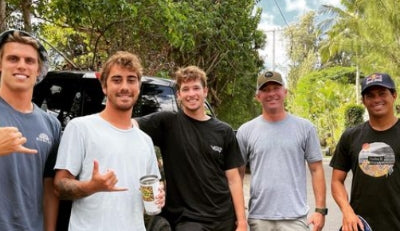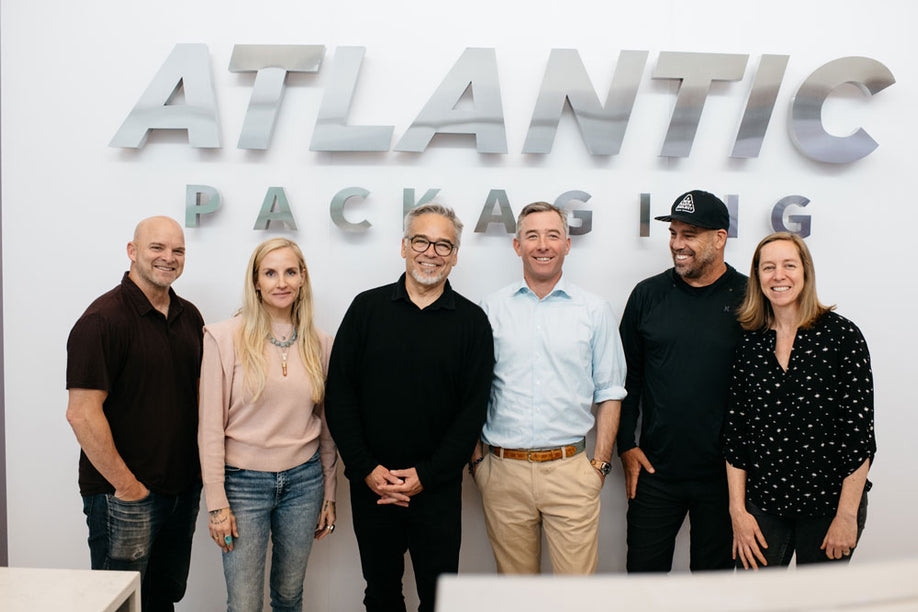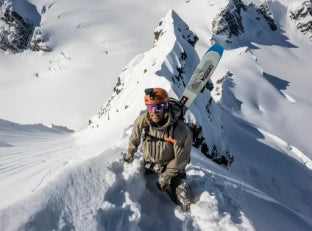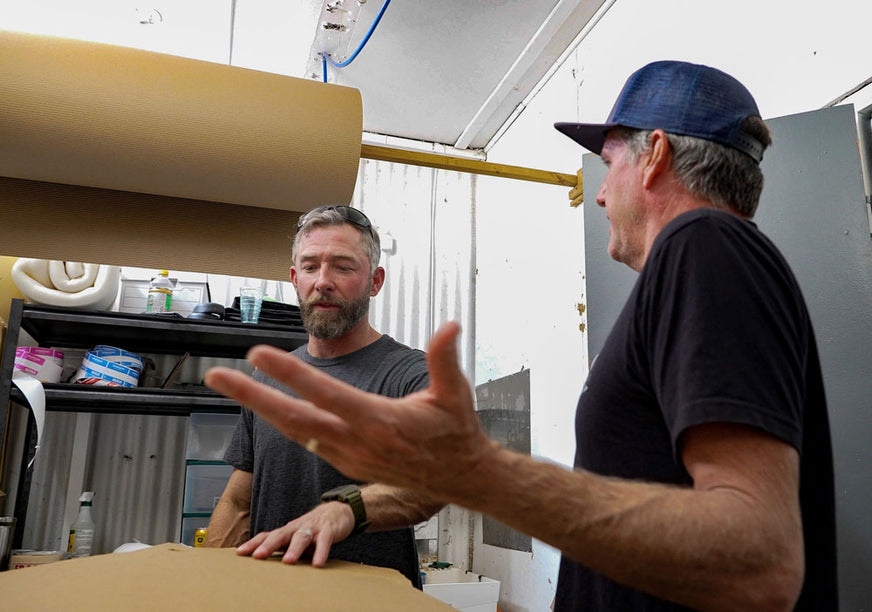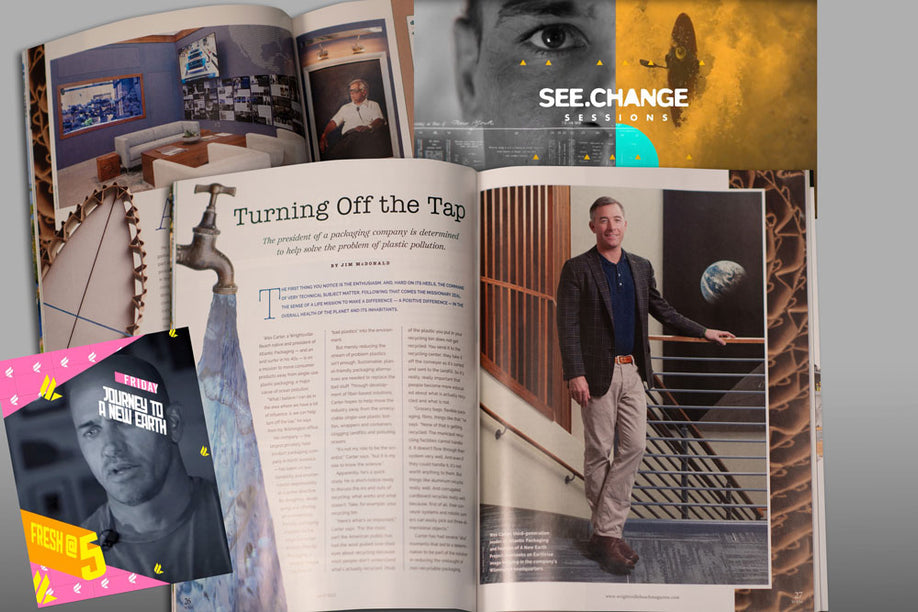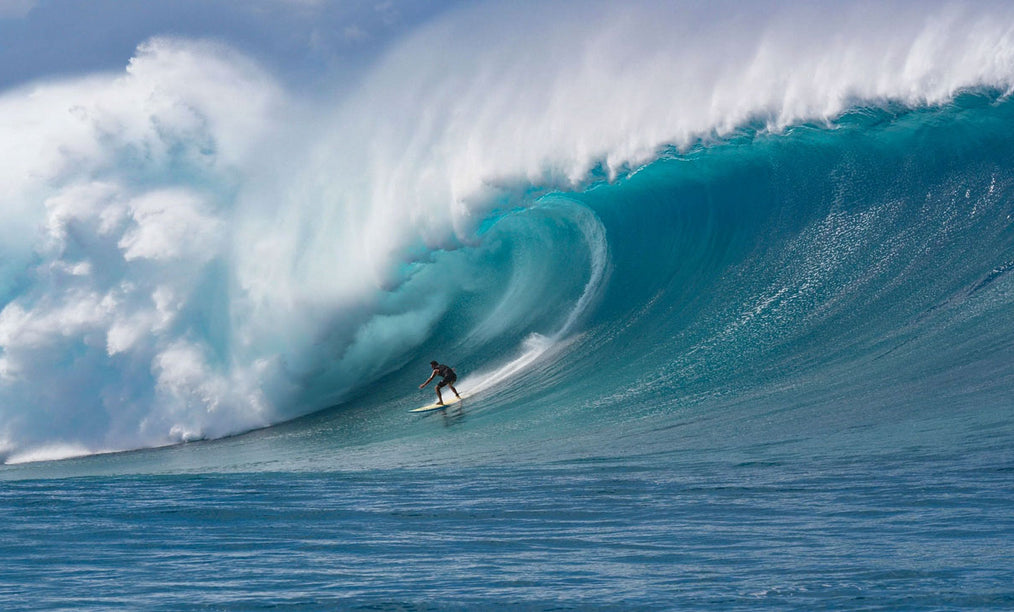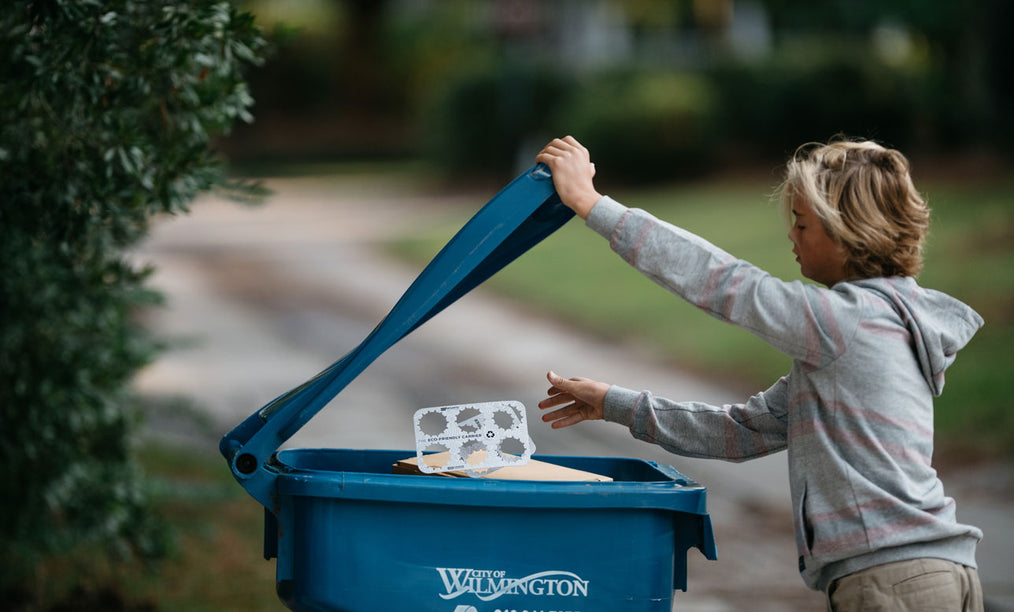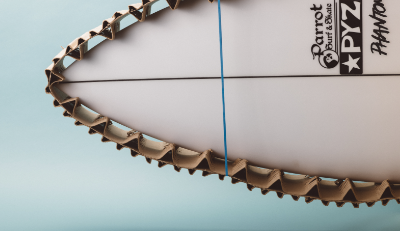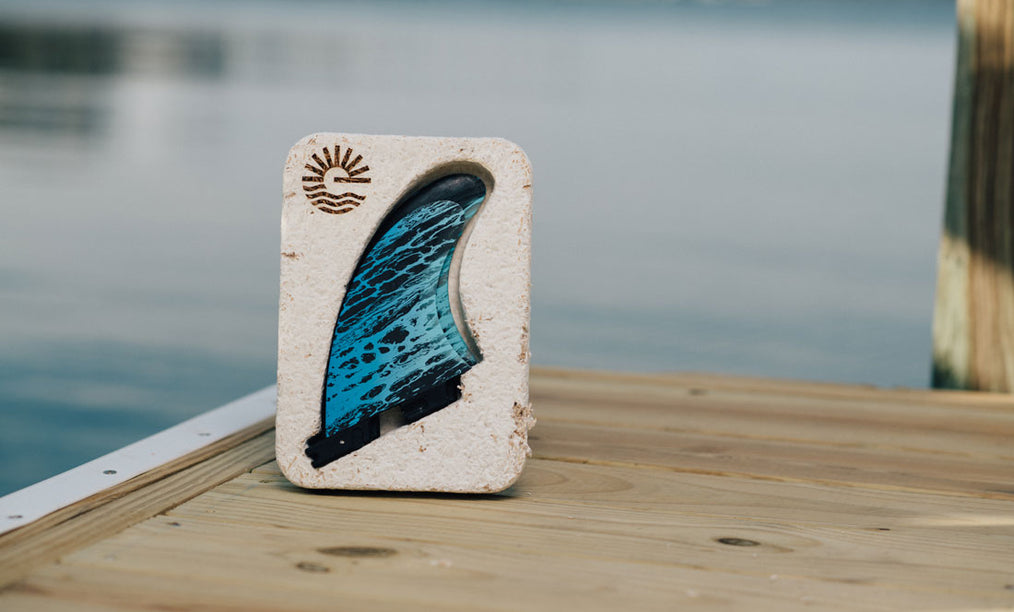Duane DeSoto was swimming before he could walk. That was a tradition passed down from his kupuna, or ancestors, in Makaha, on Oahu's West Side.
"We grew up with an unbroken connection to their knowledge of the ocean," he explains. "Canoes, fishing, surfing. All of that fed into our stewardship, or mālama."
For centuries, intimacy with the ocean has been the bedrock of Hawaiian culture.
Their special relationship with the sea, including wave riding skills, was one of the first thing outsiders took note of when they first landed in Hawaii in the late 18th Century.
"Swimming is not only a necessary art, in which both men and women are more expert than any people we had hitherto seen, but a favorite diversion amongst them," reads an entry from one of Captain James' Cook's journals in 1779.
The same entry goes on to describe surfers riding waves in front of a rocky shore. "The boldness and address, with which we saw them perform these difficult and dangerous maneuvers, was altogether astonishing, and is scarcely to be credited."
Historically, Hawaiians were amphibious people. But modern life has taken its toll on that tradition. Today, only 30% of Hawaiian children actually know how to swim. "People think it would be the exact opposite, because it's Hawaii," says DeSoto. "But it's a troubling symptom of our socioeconomics."
The impact of this trend is frightening, because if Hawaiian kids aren't swimming, they're not in the ocean. With fewer kids in the ocean, fewer are interacting with nature. And without a connection to nature these kids are less likely to protect it, let alone care for it, as they get older.
None of this sits well with DeSoto. After all, all of his success can be traced back to his early indoctrination to the water. It's what helped him become a 3-time world longboard champion.
So back in 2008, DeSoto launched a new foundation called Nā Kama Kai, Hawaiian for Children of the Sea. The goal of his non-profit is to grow strong bonds between kids and nature by providing them a free, experiential, ocean introduction specifically built to empower them.
"When you grow up surfing you take that relationship for granted." says DeSoto. "You know, as soon as I walk out the door I'm looking at the wind, watching the clouds move, and I'm wondering what that's doing down at my beach. I'm trying to predict what's happening there. We call that our kīlo, which means observation. When you grow up on the beach that awareness comes natural. What we're trying to do with Nā Kama Kai is formulate that process for these kids."
Nā Kama Kai events, which occur monthly around the islands, are beautifully curated crash courses in ocean education. "It's a mobile Makaha," DeSoto explains.
Each gathering is powered by an army of volunteers, from lifeguards and surfing legends, to lawyers and marine biologists. Surrounded by love and support, kids are escorted through five stations, each with its own purpose.
The first stop is a cultural crash course on the Polynesian way finders who discovered Hawaii with the help of their nimble double-hull canoes. They break down the canoe and its parts, the names of various wind conditions, and the basics of celestial navigation.
Then they learn the basic safety protocols, which are broken down into K-A-I. (Kai is Hawaiian for ocean). K = "know your limits." A = "Ask a lifeguard." And I = "Identify the hazards." This easy to understand acronym ensures children recall the lesson every time they go to the beach.

Stop three is where the real ocean immersion begins. With the aid of a personal volunteer, each child is given a personal surfing experience. Within minutes their nerves settle, fear fades, and kids experience the thrill and the fun of riding a wave. In almost every case, the profound ocean experience begins to alter their view of the world.
At station four they travel even further into the ocean, beyond the waves, inside a double-hull canoe. From the calm outer water they take in a new perspective of land, where they can see how mountains connect to the sea through rivers, and they learn about how plastic bags, cigarette butts, and toxic waste, all reach the ocean and through rivers.
At the final stop, the environmental message is brought home even more, as kids learn about Hawaii's outer islands, which are home to several endangered species in need of protection. They learn about the marine debris problem, and their kuleana (responsibility) to protect the ocean and its habitat.

Over the past 14 years, Nā Kama Kai has hosted hundreds of events in Hawaii, as well as Japan, Tahiti, and Brazil. Their volunteer force at every stop is an incredible mix of children and adults, including, of course, many Makaha-based families.
Naturally, the DeSotos are always well represented since both Duane and his wife Mālia Kaaihue, have aunties and uncles who chip in regularly, along with a good portion of their eight beautiful children. "Some of our children started out as indentured servants in our early days," DeSoto jokes. "But it's become part of who they are now."
Micah DeSoto, 28, is the oldest of their children, and is a father himself these days. He spearheads all of the event coordinating. Pua DeSoto, their 17-year-old daughter, has racked up more than 16,000 hours of community volunteer service while embarking on her own competitive surfing career. She's won national titles as an amateur and is hoping to qualify for the Championship Tour in 2023. Her little brother Kalānōweo just may be on a similar path.

Naturally, DeSoto will be at as many competitive events as he can cheering them on, but in the big picture, whether any of his children repeat his competitive feats isn't the point, because they've have already won. Their connection to the ocean is unbreakable, and when it comes to passing on the knowledge, respect, and cultural richness surrounding it, they're already outpacing mom and dad. That's what success looks like.
Over the last fourteen years they've connected thousands upon thousands of kids to the ocean. Thanks to the DeSotos and their enormous Nā Kama Kai family of volunteers, Hawaii's youngsters will represent the front line of ocean conservation, and the world just might be saved because of it.
If you'd like to find out more, or donate to the Nā Kama Kai, click here.
